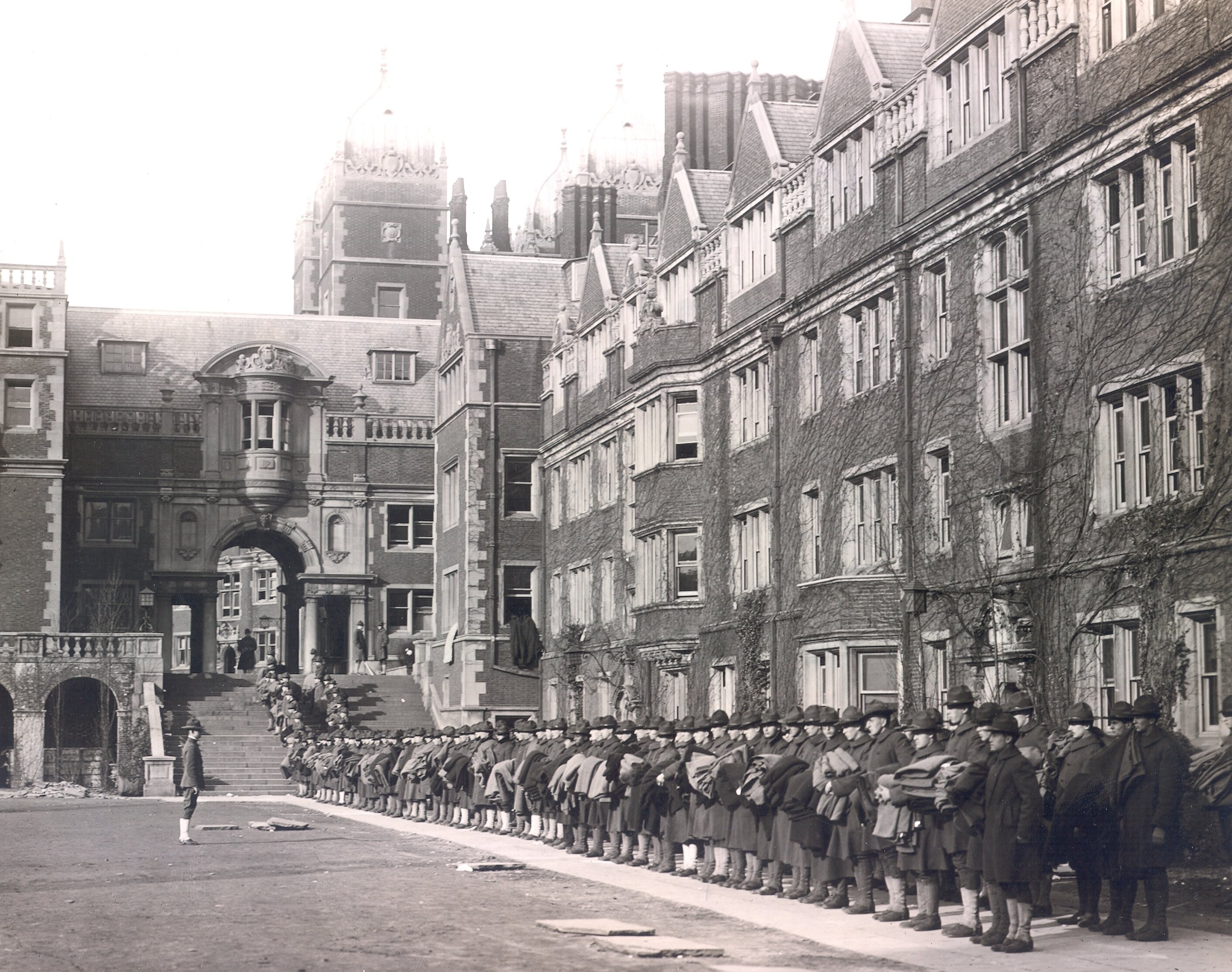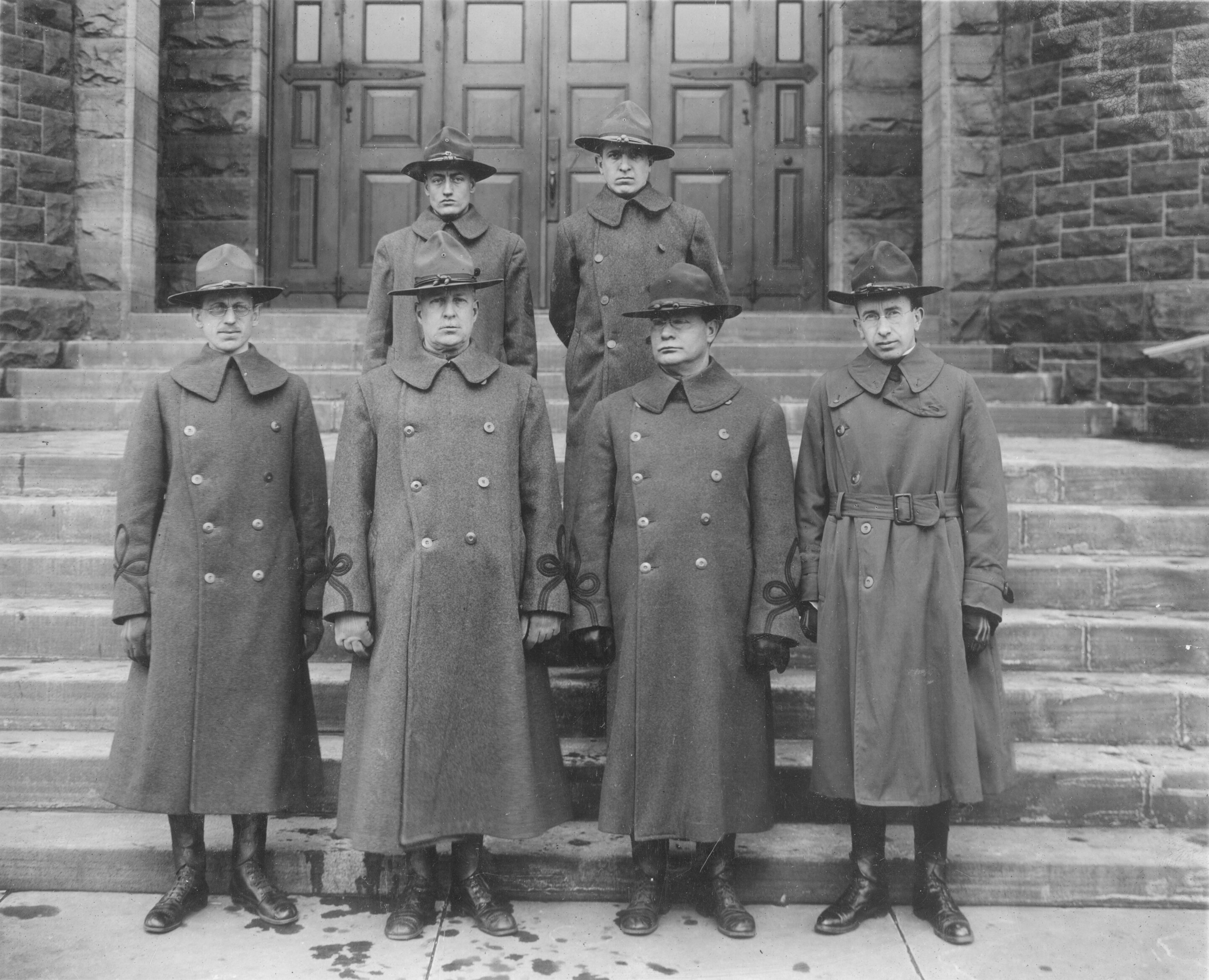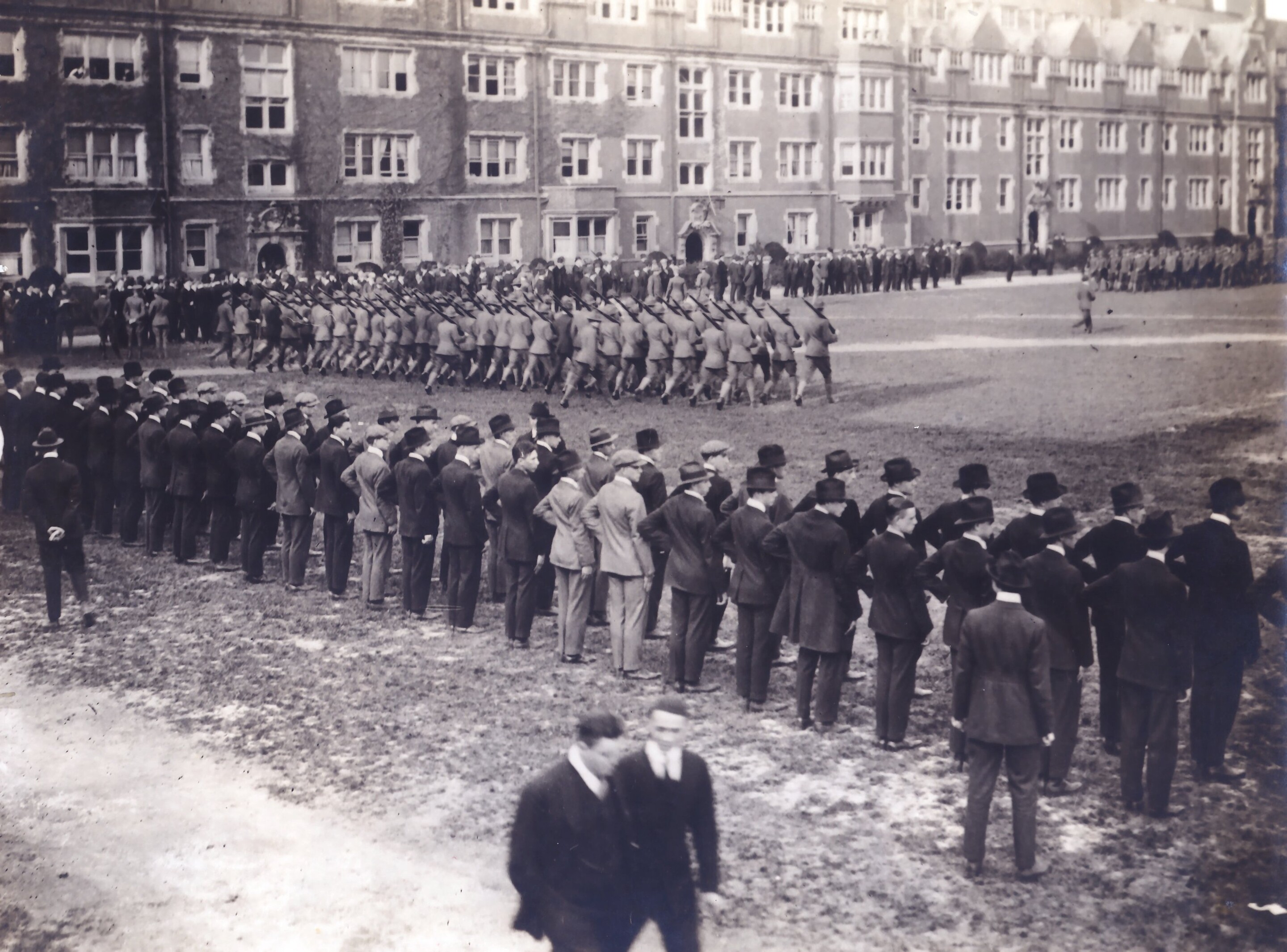
(From left) Doctoral student Hannah Yamagata, research assistant professor Kushol Gupta, and postdoctoral fellow Marshall Padilla holding 3D-printed models of nanoparticles.
(Image: Bella Ciervo)

Nov. 11 is the centennial of the end of World War I, “the war to end all wars.” Historians Arthur Waldron and Frederick Dickinson provide perspectives on the conclusion of that horrifically deadly conflict.
Arthur Waldron, Department of History, School of Arts and Sciences
An expert in military and diplomatic history, Waldron focuses on the study of war and violence. He says understanding war is not easy and World War I could have been avoided by better diplomacy. For example, if the Germans had renewed the Reinsurance Treaty of 1877, a secret agreement between Germany and Russia, after Kaiser Wilhelm II took the throne, and had the Allies used the correct strategy, the war could have been won at much lower cost:
“A properly executed Gallipoli Campaign could have ended the war by 1915 and Germany could have been defeated from the east, as the dramatic Macedonian campaign of French Gen. Louis Franchet-d’Espèrey clearly demonstrates.
More broadly, the war shows the critical importance of strong alliances being able to communicate effectively. The only bilingual general on the Entente side was French artillery officer Robert Nivelle, who became the commander-in-chief on the Western Front in December 1916. This was among other mistakes, including the lack of a long-sighted diplomacy, strategic thinking, and a realistic concept of post-war order sought.
Versailles demonstrates that the most important phase of a war, after winning it: its termination. This must produce a stable situation that will not require repeated interventions to maintain. To do this requires planning well in advance.
Also, one must be sure the enemy understands they have lost the War. Gen. John Pershing, the commander of American Expeditionary Forces on the Western Front, strongly recommended marching on Berlin to make this point crystal clear. But Wilson rejected this idea, saying that it was ‘too militaristic.’
So, rather than Entente troops celebrating on the streets of Berlin, they were only seen in the Rhineland, which paved the way for Dolchstoßlegende, or the widely believed myth, which suggested that Germany was not brought down by the military but by other subversives. Later, Adolph Hitler rode this belief to power. Had Wilson listened to Pershing, Hitler’s rise would have been likely impossible.
The goal of peacemaking is to make stable peace, not to punish the defeated adversary. Peace should have been negotiated with the Germans to find acceptable terms, not presented to them previously unseen as it were on a salver in the restaurant of the Hotel Versailles, where a tiny plaque commemorates that memorable moment.”

Frederick Dickinson, Professor of Japanese History, Co-Director, Lauder Institute of Management and International Studies
Born in Tokyo and raised in Kanazawa and Kyoto, Dickinson focuses on Japan and Asia in the early twentieth century. He sees the war and its conclusion not simply as the beginning of an American Century but, more importantly, as a forecast of our current Asia/Pacific World.
Dickinson teaches courses on world history, modern Japanese history, and empire, war, and nationalism in East Asia and the Pacific.
He’s the author of “War and National Reinvention: Japan in the Great War, 1914-1919,” and “World War I and the Triumph of a New Japan, 1919-1930.” Currently, he is writing “A Global History of Modern Japan,” to rethink world history through the prism of modern Japan.
“Although we often think of the Second World War as most representative of the destructive potential of the modern era, World War I was the much greater historical benchmark. As historian Barbara Tuchman noted in the early 1960s, World War I was ‘the chasm between our world and a world that died forever.’
It was the turning point between the 19th century and the world in which we live today—one marked by mass mechanization, mass communication, mass destruction, and modern nationalism, but also internationalism, multilateralism, disarmament regimes, and globalization. The First World War was, in other words, the most pivotal watershed of the modern era.
Japan’s pivotal role in World War I offers a tantalizing glimpse of the rise of an Asia-Pacific World. American financial might ultimately proved decisive for the Entente victory. But Japan joined the war against the Central powers in August 1914, more than two and a half years before the U.S.; Japanese ground and naval forces guaranteed German defeat in Asia by Nov. 1914; the Japanese navy maintained security in the Pacific and Indian oceans; Japanese destroyers joined the hunt for German U-boats in the Mediterranean; Japanese arms helped keep Russia in the war until 1917; and Japanese shipping supplied the Entente throughout the war.
Had Japan decided to join the Central Powers instead of the Entente, the effect would have been dramatic. The Japanese could have dominated the Pacific, the U.S. might have remained neutral, and Britain and France may have sued for peace by 1918. We’d be living in a very different world today if, in August 1914, Japanese Foreign Minister Kato Takaaki had yielded to pressure from within the Imperial Japanese Army to declare war on Britain and its allies.


(From left) Doctoral student Hannah Yamagata, research assistant professor Kushol Gupta, and postdoctoral fellow Marshall Padilla holding 3D-printed models of nanoparticles.
(Image: Bella Ciervo)

Jin Liu, Penn’s newest economics faculty member, specializes in international trade.
nocred

nocred

nocred